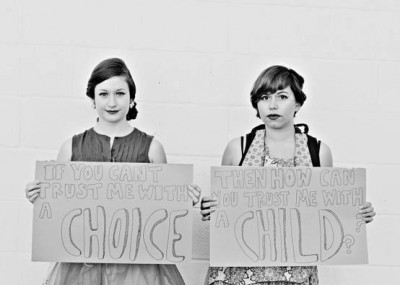In a post titled Sex, Abortion and Control, anonymous blogger Hala/Cleo looks back at the painful experience she endured while supporting a friend through an abortion procedure in Egypt.
She writes:
Abortion happens in Egypt. The anti-choice chest-beating religious leaders and basha politicians bear little influence on the decisions of women to terminate pregnancies. Once a decision has been made, women will find a way to make it happen. Again, abortion happens in Egypt.
Despite this reality, abortion is illegal – all but in the case of danger to the woman’s health.
Abortion is strictly illegal in Egypt except to save a woman's life, which is the case of most countries in the Middle East and North Africa (MENA) region. The exception to that is Tunisia and Turkey, which have more liberal abortion laws. According to the World Health Organization, around 1.5 million abortions in MENA in 2003 were performed in unsanitary settings, by unskilled providers, or both. Complications from those abortions accounted for 11 per cent of maternal deaths in the region.
In 2009, top Islamic scholars in Egypt issued a fatwa (religious edict) allowing women to perform abortion in cases of rape. However, it was never translated into a law.
Hala/Cleo offers her analysis of the reasons for outlawing abortion:
It serves as a means to control women. It silences, shapes, uses and then discards us. It limits our societal roles to being baby-making vessels within marriage, only within marriage. And if not, it squeezes the reality of an active healthy sexuality out of our ovaries and hangs the bloodied sheets off our balconies in the name of honour. It does not acknowledge us if only to shame us.
As the blogger notes, the topic remains a rarely discussed problem. She also provided a guide on performing abortion in Egypt.







